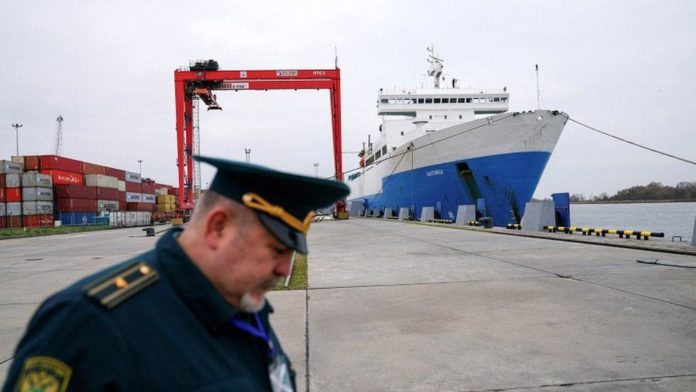Russia has warned Lithuania of “serious” consequences after it banned the rail transfer of some goods to the Russian territory of Kaliningrad.
Russia “will certainly respond to such hostile actions,” senior security official Nikolai Patrushev said.
Lithuania says it is only following the EU sanctions imposed over Moscow’s invasion of Ukraine.
Kaliningrad – a strategic region where Russia’s Baltic Fleet is headquartered – has no border with mainland Russia.
The western territory was annexed from Germany after World War Two in 1945 and is bordered by EU and Nato members Lithuania and Poland.
The region – where an estimated one million people live – relies heavily on imports of raw materials and spare parts from Russia and the EU.
Regional Governor Anton Alikhanov said the ban would cover around 50% of the items that Kaliningrad imports.
READ ALSO:
During a visit on Tuesday to Kaliningrad, Mr Patrushev said the blockade by Lithuania was instigated by the West “in violation of… international law”.
The secretary of Russia’s Security Council warned that “appropriate measures” would be taken “in the near future”.
“Their consequences will have a serious negative impact on the population of Lithuania,” he added, without giving any further details.
Earlier on Tuesday, the EU ambassador was summoned to the Russian foreign ministry over the blockade.
Last week, the Lithuanian authorities announced they would ban goods subject to EU sanctions from passing through their territory to Kaliningrad.
Lithuanian Foreign Minister Gabrielius Landsbergis said: “It’s not Lithuania doing anything: it’s European sanctions that started working from 17 June… It was done with consultation from the European Commission and under European Commission guidelines.”
The EU has echoed Lithuania’s statement, saying that the country is just implementing sanctions imposed by the EU as a result of Russia’s invasion of Ukraine.
The sanctions list includes coal, metals, construction materials and advanced technology.
As a member of the Nato military alliance, Lithuania is protected by collective defence treaties.

